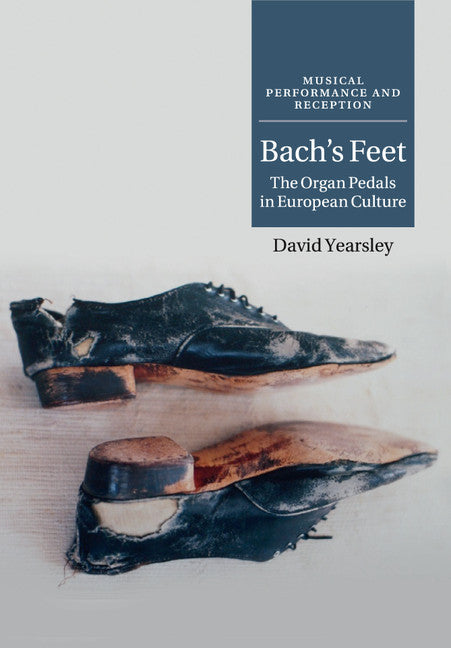Freshly Printed - allow 6 days lead
Couldn't load pickup availability
Bach's Feet
The Organ Pedals in European Culture
Yearsley explores the cultural significance of making music with hands and feet, a mode of performance unique to the organ.
David Yearsley (Author)
9781316639832, Cambridge University Press
Paperback / softback, published 2 February 2017
314 pages, 44 b/w illus. 88 music examples
24.4 x 17 x 1.7 cm, 0.55 kg
'Part of [Yearsley's] intent in writing Bach's Feet, which is clearly a labor of love, is to reintroduce the organ into general musicological discourse, and perhaps even attract some lay readers. His book certainly deserves to succeed in its mission, and the organ, as he says, is 'ready for a comeback'.' Notes
The organist seated at the king of instruments with thousands of pipes rising all around him, his hands busy at the manuals and his feet patrolling the pedalboard, is a symbol of musical self-sufficiency yielding musical possibilities beyond that of any other mode of solo performance. In this book, David Yearsley presents an interpretation of the significance of the oldest and richest of European instruments, by investigating the German origins of the uniquely independent use of the feet in organ playing. Delving into a range of musical, literary and visual sources, Bach's Feet demonstrates the cultural importance of this physically demanding mode of music-making, from the blind German organists of the fifteenth century, through the central contribution of Bach's music and legacy, to the newly-pedaling organists of the British Empire and the sinister visions of Nazi propagandists.
Introduction
1. Inventing the organist's feet
2. Harmonies of the feet, visions of the body
3. Walking towards perfection: pedal solos and cycles
4. The pedal in the cosmopolitan age of travel
5. Treading the globe: the world-wide expansion of the German pedal ideal
6. Bach's feet.
Subject Areas: Keyboard instruments [AVRG], Romantic music [c 1830 to c 1900 AVGC5]


